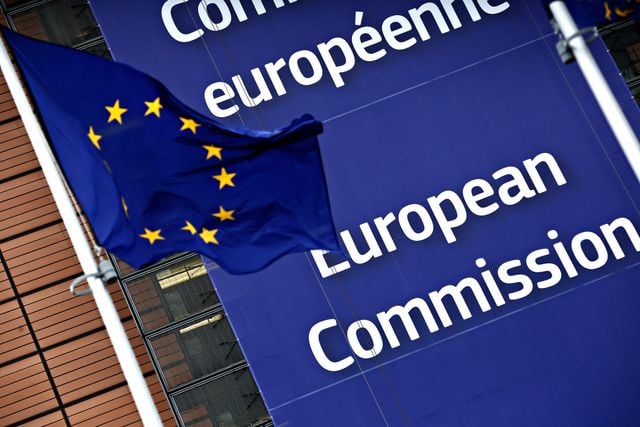The European Commission’s first “Simplification omnibus package” to amend the Corporate Sustainability Reporting Directive (CSRD), Corporate Sustainability Due Diligence Directive (CSDDD) and Taxonomy Regulation was released on Wednesday. The Commission’s proposal largely follows the leaked draft circulating last weekend, with some important modifications and additional detail. In this post, we take a detailed look at the Commission’s proposal, discuss differences from the leaked draft and provide some of our own observations.
Both Level 1 and Level 2 Action Contemplated
Level 1 legislation requires approval of the European Parliament and Council. Level 2 measures allow the European Commission to take action through delegated acts or implementing acts, pursuant to authority granted in level 1 legislation. Level 2 measures still involve input by the Parliament and Council, albeit more streamlined. Although not exactly the same, but close enough to draw a comparison for a U.S. reader, level 1 legislation is somewhat analogous to the process by which a bill becomes a law while level 2 measures are closer to an agency rulemaking.
The CSRD/CSDDD proposals include a combination of level 1 and level 2 approaches, as discussed below. Changes to the CSRD are more weighted toward level 2 delegated acts, specifically amendments to the existing European Sustainability Reporting Standards adopted by the Commission under the CSRD pursuant to delegated authority. In contrast, changes to the CSDDD are level 1. The proposed changes to the Taxonomy Regulation take the form of a Commission Delegated Regulation that would amend prior Commission Delegated Regulations.
The omnibus proposal is just that – a proposal. In order to come into effect, any level 1 changes would need to be agreed to by both the European Parliament and Council. That process could take some time (i.e., many months or longer), although the European Commission has asked those bodies to treat the omnibus as a priority, in particular with respect to postponing disclosure requirements under the CSRD and the transposition deadline for the CSDDD. As part of the sausage-making, it is likely some aspects of the proposal will be revised before being finally adopted.
Amending Directives Proposed
Directives must be transposed into national law by each EU member state. In contrast, regulations apply directly in EU member states. The CSRD and CSDDD are of course both Directives, as evidenced by the “D” at the end of each name.
The amendments to the CSRD and CSDDD are contained in two proposed Directives that would amend earlier Directives. The skinnier of the two proposed Directives is focused on timing changes. The other proposed Directive contains substantive changes to the CSRD and CSDDD, with more of the focus on the CSDDD.
The timing Directive would be required to be transposed generally by December 31, 2025, although the timing amendments to the CSDDD would be required to be transposed by July 26, 2027. The substantive amendments would be required to be transposed into national law within one year after that Directive enters into force.
As many readers will recall, member states had 18 months to transpose the original CSRD. A large number – ten – still have not done so, many months after the deadline. The limited scope of the timing Directive is likely to mitigate concerns of a lengthy debate in the Parliament and Council.
Transposition of substantive CSDDD amendments should not raise significant timing concerns for compliance. Member states are at the beginning of the CSDDD transposition process anyway. In addition, the CSDDD currently would not first apply until mid-2027 and, as discussed below, the proposal contemplates an additional year before compliance would be required.
Thus far, the idea of scaling back the CSDDD generally has been more polarizing than amending the CSRD. Since the omnibus was first announced, there have been frequent and loud calls by many civil society organizations and some companies to stay the course on the CSDDD. It remains to be seen how this plays out in the coming deliberations over the proposal.
Furthermore, signs suggest that the applicability of the CSDDD to U.S.-based companies may become wrapped up in U.S.-EU trade negotiations. Twenty-six U.S. states have sent a letter to President Trump encouraging retaliatory action because of the CSDDD’s extraterritorial reach. The letter requests that the United States Trade Representative open an investigation regarding the CSDDD under Section 301 of the Trade Act of 1974, which allows interested parties to petition the Trade Representative to investigate a foreign government act, policy or practice, and subsequently take action to respond to that government's action if it is determined to be an unreasonable or discriminatory act, policy or practice that burdens or restricts U.S. commerce.
Corporate Sustainability Reporting Directive
Compliance Thresholds
The number of undertakings subject to mandatory sustainability reporting requirements would be reduced by approximately 80%, taking out of scope large undertakings and parent undertakings of large groups with 1,000 or less employees, and listed SMEs.
Most U.S.-based multinationals currently phase in to the CSRD for fiscal 2025 based on the “large undertaking” construct in the Accounting Directive. The proposal would substantially raise the reporting threshold to only include large undertakings and parent undertakings of large groups with more than 1,000 employees on average and either a turnover above €50 million or a balance sheet above €25 million. This is different than the threshold in the leaked draft, which contemplated thresholds of €450 million net turnover and 1,000 employees, in alignment with the CSDDD.
The next important phase-in for U.S.-based multinationals is the non-EU parent (third-country undertaking) phase-in, which applies from fiscal 2028. The EU net turnover threshold relevant for that cohort would be raised from €150 million to €450 million. In addition, for consistency, the reporting obligation would only apply to large subsidiary undertakings as defined in the Accounting Directive (currently, the obligation applies to both large subsidiary undertakings and SMEs (other than micro undertakings) that are public interest entities) or an EU branch with net turnover of €50 million (currently, the obligation applies to EU branches with turnover of €40 million).
A large number of U.S.-based multinationals would be scoped out of CSRD reporting under the proposed thresholds. However, this will not benefit larger multinationals. Hundreds of U.S.- (and other non-EU-) based multinationals will still be subject to the CSRD. Even a scaled-back CSRD will require reporting by thousands of companies.
Timing
The Commission is proposing to postpone by two years the reporting requirements for fiscal year 2025 and fiscal year 2026 first-time reporters (the second and third waves of reporters). This would mean that most U.S.-based multinationals – which are second wave reporters – would begin reporting starting with fiscal 2027.
The Commission has not proposed delaying non-EU parent undertaking reporting.
The Commission also has not proposed modifying the reporting deadline for fiscal year 2024 reporters.
Materiality
There were media reports that the Commission planned to scrap double materiality for CSRD reporting. Rather than keying reporting off either financial or impact materiality, only financial materiality would be taken into account. In the proposal, the Commission made clear that a shift from double to single materiality is not contemplated. As noted below, the Commission has indicated it will issue revised versions of the ESRS that provide further guidance on the materiality analysis.
Taxonomy Reporting
The Commission has proposed an “opt-in” Taxonomy Regulation regime for many CSRD reporters. Large undertakings with a net turnover not exceeding €450 million only would have Taxonomy Reporting obligations if they elect to claim activities are aligned or partially aligned with the EU Taxonomy. These entities would be required to disclose their turnover and CapEx KPIs. They also may choose, but would not be required, to disclose their OpEx KPI.
This approach is intended to eliminate the cost of compliance with Taxonomy Regulation reporting for large undertakings that have net turnover not exceeding €450 million and that do not claim their economic activities qualify as environmentally sustainable under the Taxonomy Regulation.
On February 26, the Commission published for consultation draft amendments to the Taxonomy Disclosures Delegated Act and the Taxonomy Climate and Environmental Delegated Acts. These drafts would simplify the reporting templates, leading to a reduction of data points by almost 70%, and exempt companies from assessing Taxonomy eligibility and alignment of their economic activities that are not financially material for their business (e.g., those not exceeding 10% of their total turnover, CapEx or OpEx). The Commission also has proposed amendments to the main key performance indicators of financial institutions, especially the Green Asset Ratio. In addition, the Commission is asking for feedback on two alternative options for simplifying the most complex “Do No Significant Harm” criteria for pollution prevention and control related to the use and presence of chemicals that apply horizontally to all economic sectors under the EU Taxonomy.
Value Chain Reporting
The CSRD requires undertakings to report information about their own operations and their value chain. A concern has been the burden this places on the value chain, especially smaller companies.
The CSRD currently indicates that ESRS may not contain reporting requirements that would require undertakings to obtain from SMEs in their value chain information that exceeds the information to be disclosed under the proportionate standard for listed SMEs. The Commission proposes to extend this value chain cap to apply directly to reporting companies, rather than only limiting ESRS content. Under the proposal, CSRD reporting entities generally could only request from non-reporters information contemplated by the voluntary reporting standard to be adopted by the Commission. Voluntary reporting is further discussed below.
Voluntary Reporting Standard
For undertakings not subject to mandatory sustainability reporting requirements, the Commission proposes to adopt a standard for voluntary use that would be based on the voluntary standard for SMEs developed by EFRAG – the technical advisor to the Commission that develops the draft ESRS. This standard is intended to be proportionate to the scale and complexity of smaller undertakings. The voluntary standard would be adopted by the Commission as a delegated act.
In the meantime, to address market demand, the Commission intends to issue a recommendation on voluntary sustainability reporting as soon as possible, based on the voluntary SME standard developed by EFRAG.
Other Current ESRS Disclosure Requirements
There have been calls by many constituencies to provide relief from the large number of ESRS disclosure requirements. For example, Germany has proposed substantially reducing ESRS data points and content and introducing individual data points in stages over time. France has proposed drastically reducing the number of ESRS indicators and focusing them on climate objectives. Denmark has proposed cutting and simplifying reporting requirements by 50% to 75%.
In the commentary to the proposal, the Commission indicates that it will trim the ESRS requirements. The Commission has indicated that it intends to adopt “without delay” a delegated act to revise the first set of ESRS, at the latest six months after the entry into force of the amending Directive.
The Commission plans to simply and streamline the ESRS and provide clarity and legal certainty to undertakings. According to the Commission, the revision of the delegated act adopting the ESRS will substantially reduce the number of mandatory ESRS data points by:
- Removing those deemed least important for general purpose sustainability reporting;
- Prioritizing quantitative data points over narrative text; and
- Further distinguishing between mandatory and voluntary data points, without undermining interoperability with global reporting standards and without prejudice to the materiality assessment of each undertaking.
The revision also is intended to improve consistency with other pieces of EU legislation and provide clearer instructions on how to apply the materiality principle, ensure that undertakings only report material information and reduce the risk that assurance service providers inadvertently encourage undertakings to report information that is not necessary or dedicate excessive resources to the materiality assessment process. The revision also is intended to simplify the structure and presentation of the ESRS.
Sector-specific Standards
The CSRD currently empowers the Commission to adopt sector-specific reporting standards by delegated acts, with the first set of standards currently to be adopted by June 30, 2026. EFRAG had an ambitious workplan for sector-specific standards across eight broad industry groups. The Commission however subsequently deprioritized the preparation of these standards. The proposal would eliminate the Commission’s empowerment, permanently putting sector-specific standards on hold.
Assurance
The CSRD requires limited assurance of sustainability reporting. Undertakings and assurance providers have been grappling with the lack of clarity in this area. Some commentators have advocated for the assurance requirement to be put on hold or delayed.
The proposal takes a different approach. The Commission currently is required to adopt standards for sustainability assurance by October 1, 2026. Instead, the Commission proposes to issue targeted assurance guidelines that clarify the necessary procedures that assurance providers are to perform as part of their limited assurance engagement. The Commission believes this approach will enable it to more quickly address emerging sustainability assurance issues that may be generating unnecessary burden on undertakings.
The CSRD also currently empowers the Commission to adopt standards for reasonable assurance by October 1, 2028. This provision would be deleted, effectively freezing the review at the limited assurance level.
Corporate Sustainability Due Diligence Directive
Timing
In its January public statement, France recommended that the CSDDD be put on indefinite hold. The Commission instead is proposing to delay initial CSDDD compliance by one year, to July 26, 2028. In addition, the Commission's deadline for adopting general due diligence guidelines would be moved up to July 26, 2026, from January 26, 2027. This would give companies two full years to take the guidance into account in developing their due diligence measures.
The proposal does not seek to push back the second and third CSDDD phase-ins (i.e., the current 2028 and 2029 phase-ins).
Risk Assessment
The CSDDD currently requires a risk-based system to assess actual and potential adverse human rights and environmental impacts in both the upstream and portions of the downstream.
The proposal generally would limit the requirement to identify and assess actual and potential adverse impacts to direct business partners (i.e., the tier 1). An in-depth assessment only would be required with respect to an indirect partner if the subject company has plausible information that suggests that adverse impacts have arisen or may arise at that level.
This is the approach taken in the German LkSG (or Act on Corporate Due Diligence Obligations in Supply Chains). However, irrespective of whether plausible information regarding an indirect business partner is available, the subject company would be required to seek contractual assurances from the direct business partner that it will ensure compliance with the company's code of conduct (which is part of the due diligence policy) through flow-down requirements.
The burden on smaller direct business partners in connection with risk mapping also would be reduced. The proposal provides that member states would be required (in their transposing legislation) to ensure that companies generally do not seek to obtain from direct business partners with fewer than 500 employees information that exceeds that provided for in voluntary ESRS adopted pursuant to the CSRD.
Risk Mitigation
The proposed amendments would remove the duty to terminate business relationships. However, under certain circumstances, suspension of the relationship still could be required.
Monitoring
As proposed, companies only would need to assess the adequacy and effectiveness of due diligence measures every five years, instead of annually. More frequent ad hoc assessments in the event of changed circumstances still would be required.
Stakeholder Engagement
To reduce compliance burdens and make stakeholder engagement more proportionate, the Commission proposes that subject companies only would have to engage with workers, their representatives and individuals and communities whose rights or interests are or could be directly affected by the products, services and operations of the company, its subsidiaries and its business partners, and that have a link to the specific stage of the due diligence process being carried out.
In addition, stakeholder engagement only would be required for selected aspects of the due diligence process, specifically at the impact identification stage, when developing prevention and corrective action plans and when designing remediation measures. Engagement would no longer be required in connection with deciding to terminate or suspend a business relationship or when developing quantitative or qualitative indicators for monitoring.
Member State Harmonization
The CSDDD currently prohibits member states from introducing into their national laws requirements that expand specified obligations relating to identifying and assessing actual and potential adverse impacts, preventing potential adverse impacts and ending actual adverse impacts. To ensure that member states do not go beyond the CSDDD and create a fragmented regulatory landscape that results in legal uncertainty and unnecessary burden, additional aspects of the CSDDD due diligence process generally would be required to be harmonized across members states. These would include additional elements relating to due diligence support at the group level, identifying and assessing actual and potential adverse impacts, preventing potential adverse impacts, ending actual adverse impacts and the complaints notification mechanism. However, member states would still be able to introduce more stringent requirements or more specific provisions in other respects.
Downstream Financial Services Activities
The CSDDD currently requires the Commission to submit a report to the Parliament and Council on the necessity of adopting additional due diligence requirements tailored to the provision of financial services and investment activities. This review requirement would be scrapped.
Climate Transition Plan
The CSDDD requires subject companies to adopt and put into effect a best efforts climate change mitigation transition plan. The Commission’s proposal would not eliminate the climate transition plan requirement. However, it proposes better alignment with the CSRD by deleting the requirement to put into effect a climate transition plan.
Penalties and Damages
The proposal would eliminate the requirement that member states adopt penalty provisions that provide for a maximum penalty of not less than 5% of net worldwide turnover. More generally, fines assessed would not need to be commensurate with turnover.
The private right of action contemplated by the CSDDD is one of the most concerning areas for subject companies. The Commission proposal also provides that member states would not be required to ensure that a subject company could be held liable under national law for damages to third parties. However, the proposal provides that, if a company is held liable under national law for a failure to comply with the due diligence requirements under the CSDDD, the injured party would have a right to full compensation. In addition, member state national law would not be required to allow alleged injured parties to authorize a trade union, non-governmental human rights or environmental organization or other non-governmental organization to bring actions to enforce their rights.
More Bus Analogies?
Will our future omnibus posts include more “dad joke” titles and other references to buses, other vehicles, transportation, roads and related paraphernalia? Highly likely.
About our Practice
Ropes & Gray has a leading ESG, CSR and business and human rights compliance practice. We offer clients a comprehensive approach in these subject areas through a global team with members in the United States, Europe and Asia. Senior members of the practice have advised on these matters for more than 30 years, enabling us to provide a long-term perspective and depth and breadth of experience that few firms can match. For further information on the practice, click here
Subscribe to Ropes & Gray Viewpoints by topic here.
Stay Up To Date with Ropes & Gray
Ropes & Gray attorneys provide timely analysis on legal developments, court decisions and changes in legislation and regulations.
Stay in the loop with all things Ropes & Gray, and find out more about our people, culture, initiatives and everything that’s happening.
We regularly notify our clients and contacts of significant legal developments, news, webinars and teleconferences that affect their industries.






